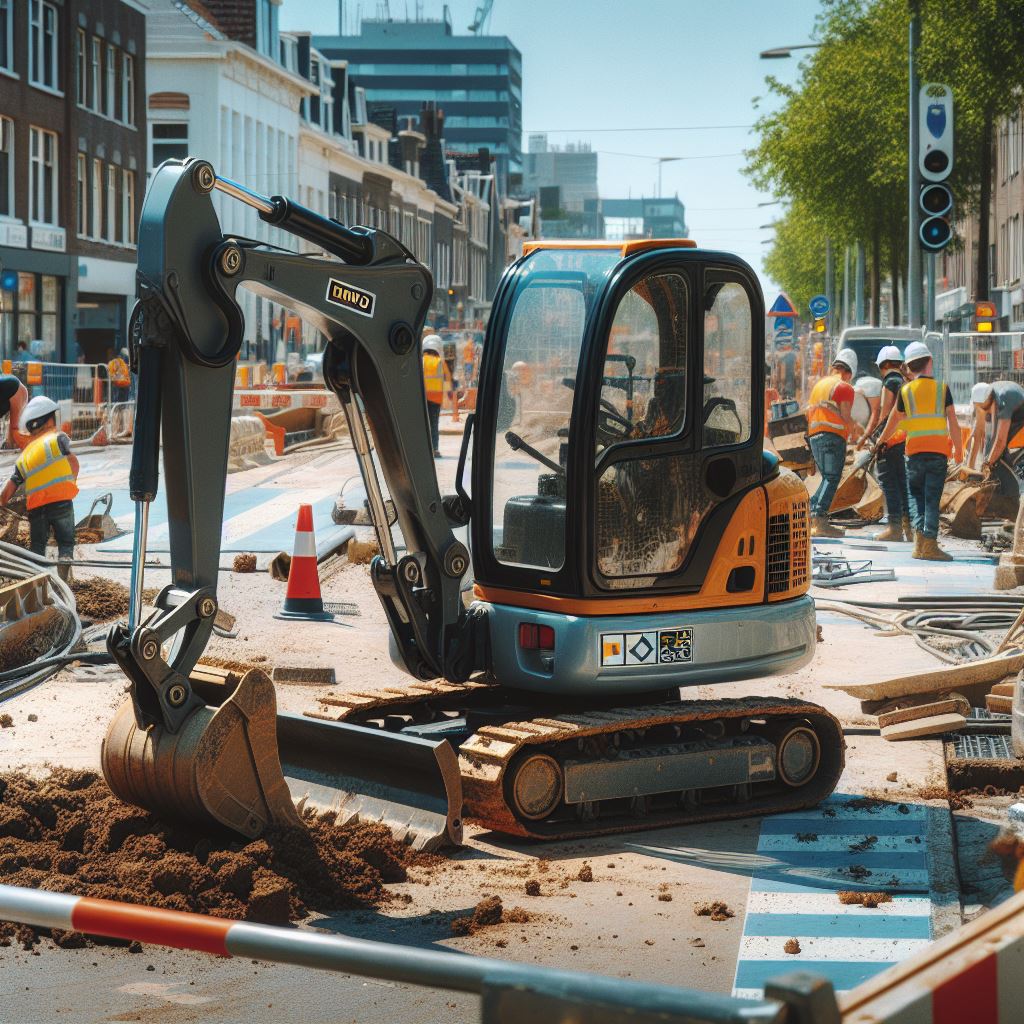Mini excavators are machines with reduced size and weight compared to larger excavators, making them more manageable and easier to use. However, when renting a mini excavator, it is necessary to pay the same attention to safety. When using heavy machinery, there is always a risk of accidents, especially if you operate without following safety protocols. Generally, hazards include collisions with other machines on the site, the risk of hitting a worker, structural collapses, or damage to equipment. In this article, we will outline some guidelines to ensure the safety of operators and the site during the use of mini excavators.
Renting Mini Excavators: How to Work Safely
When relying on a mini excavator rental service, essential safety information about the machines is usually provided. This includes specifying the capabilities and limitations of the machine, explaining how to handle the mini excavator correctly. Whether you are an experienced operator or a beginner, it is advisable to study the user manual for each mini excavator. In fact, controls, safety features, and capabilities can vary for each model of mini excavator.
Conducting Pre-Operational Safety Inspections on Mini Excavators
As with any heavy machinery, the first step to operating safely with mini excavators involves conducting a pre-operational inspection. This procedure begins with an in-depth analysis of the site itself. This allows you to become familiar with the conditions of the location and gain a clearer understanding of the task to be performed. Conducting a site inspection is crucial for identifying potential hazards and risks related to operations in that specific context. This provides the necessary knowledge to avoid complications during work. For example, when the site is located in a marshy area, along a riverbank, or on any other soft surface. It is essential to evaluate the ground’s ability to support the weight of the excavator before starting the operation.
Safety and Prevention of Damage
Subsequently, it is imperative to carefully inspect the mini excavator to ensure that every component is in optimal condition. This check includes reviewing switches, fuel levels, hydraulic systems, and fuel quantities. Any anomalies detected during the inspection must be corrected promptly before using the machine. This prevents more severe (and costly) damage to the machine and helps avoid delays when work begins.
Personal Protective Equipment
Compact mini excavators are equipped with cabins that help protect the operator from debris and other hazards, ensuring their safety. However, it is always advisable for anyone using heavy machinery to wear personal protective gear. These accessories are essential for preserving the operator’s safety in case of accidents during the use of the unit. Recommended personal protective equipment includes helmets, safety shoes, gloves, high-visibility vests, and earplugs. Operators may occasionally need to wear additional safety accessories based on site or job conditions. For example, masks for the nose and safety glasses might be recommended during demolition work where the machine raises dust.

Qualifications Required to Operate Mini Excavators Safely
To become a qualified operator, it is essential to follow a training course before using a mini excavator. The training will ensure familiarity with the basic controls of mini excavators and the acquisition of necessary skills. In addition to understanding the controls, the training should focus on the specific peculiarities of the project. For example, if you are operating the excavator on a slope or digging under overhead structures like tunnels and bridges. It is crucial to pay attention to specific safety precautions there. Operator training can also include learning the use of additional equipment, as well as providing knowledge on general repairs and machine maintenance.
Knowing the Site
When maneuvering mini excavators, one of the dangers for the site and workers is underground infrastructure, such as gas, water, and electrical lines. To avoid damage to these structures and associated risks, it is always advisable to consult the urban plan and delineate the location of such structures before starting work. The operator must pay particular attention to these underground utilities and work around them with due caution.
Respecting Load Limits
Despite their great versatility, mini excavators cannot support the same weight as standard-sized excavators. Before starting your project, evaluate the extent and complexity of the work and select excavators that can operate within the required weight limit. Overloading mini excavators beyond their operational limit could compromise worker safety with possible accidents and damage to machines.
Working with Awareness and Respect for Rules
Mini excavator operators must be aware and respect standard protocols. This includes both general protocols for operating mini excavators and those more specific based on site conditions. For example, raising the arm to the highest position while driving the excavator is dangerous. Although this practice improves visibility, it makes the machine more susceptible to tipping over. When working with mini excavators, it may be necessary to follow additional safety precautions during excavation on a slope.
Conclusion
When operating mini excavators, it is necessary for operators to have adequate training. Accurately checking the site before starting work is an essential practice for preventing potential accidents and damage. This highlights the importance of careful planning and detailed understanding of the project specifics. Additionally, attention to safety procedures is crucial for avoiding dangerous and potentially harmful situations due to rollovers.
Discover our selection on mini excavators for rent.






